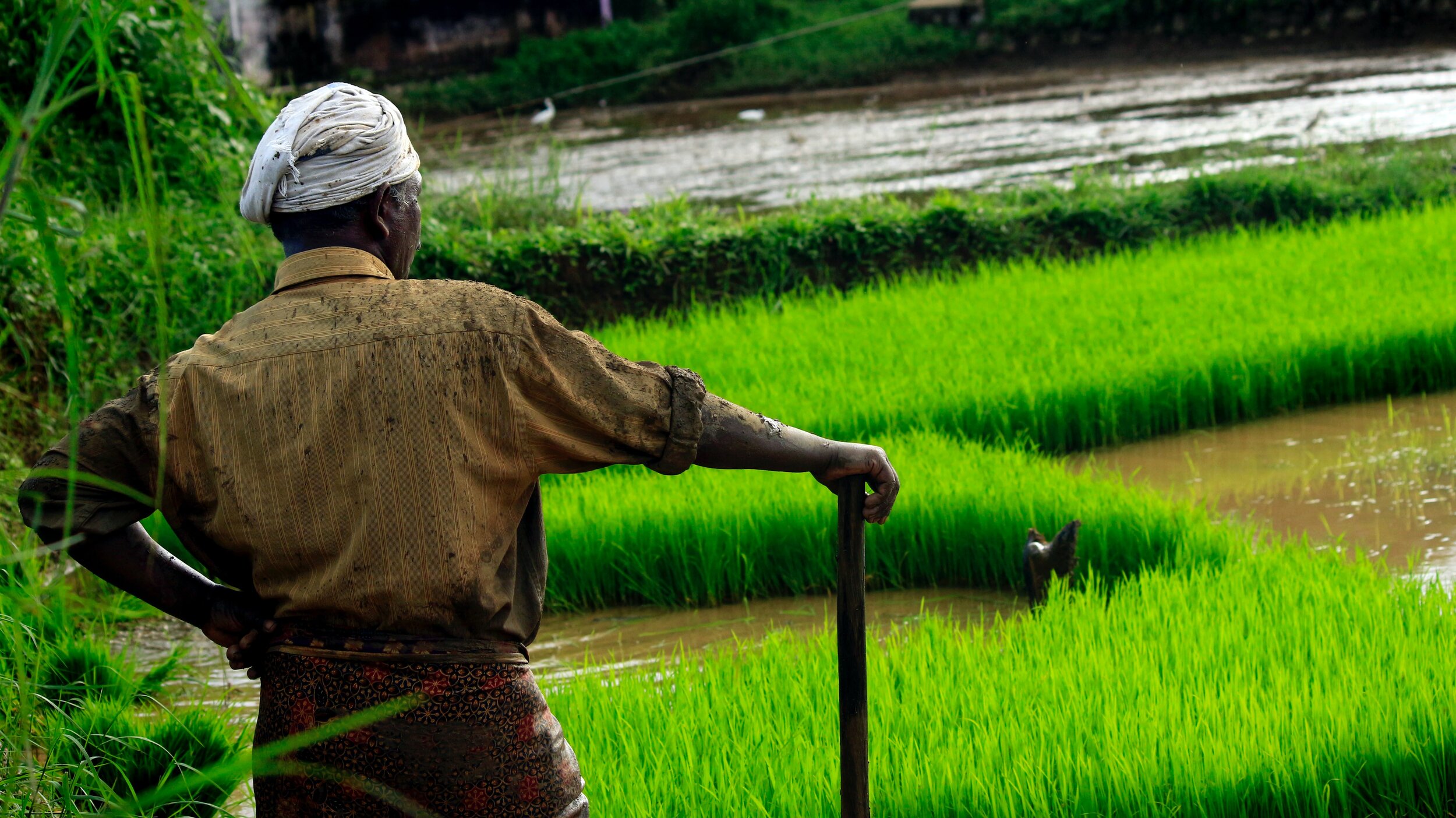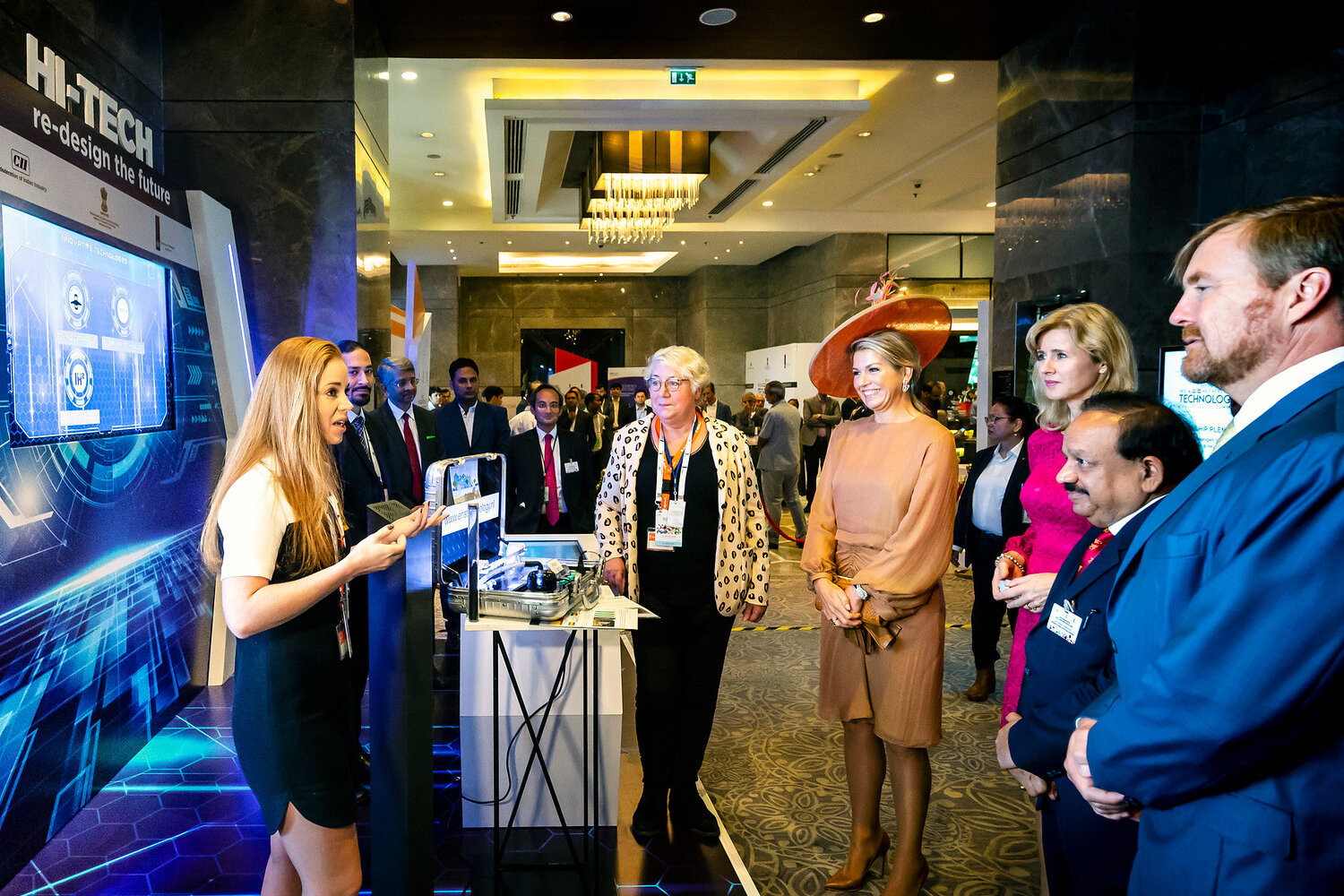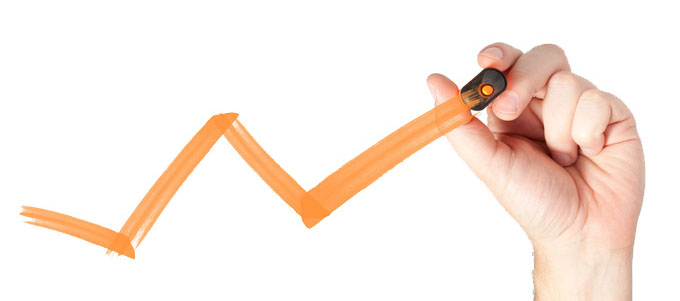2020 was an eventful year for the Indian economy, with deep lows and a rapid recovery. It brought structural problems in the country to the surface again, but also offered India the opportunity to put itself back on the international map. Rabobank's India men Hugo Erkenhead of International Economics at RaboResearch, and Marcel Heijmanlook back and ahead and analyse the essential steps India must and wants to take in the coming years and the opportunities this will offer European companies.
The coronavirus brought the whole world to a standstill, with major economic consequences. In India, too, the lockdowns had a disastrous effect on economic growth, which fell to a low of -24% in the second quarter of 2020 compared to last year. "But in the third quarter, we saw India rebound to around -8%," says Erken, who has specialised in India for several years. "For next year, we are already expecting another growth of around 8%." But if they want to continue that in the medium term, a lot of structural problems in the country need to be addressed, according to the economist. "Growing from your all-time low is easy, but to sustain it, you really need to roll up your sleeves."
India, the new factory of the world?
One of the ways India is stimulating growth is through its special 'Make in India' programme, which aims to attract more foreign manufacturers to India. The initiative was introduced six years ago, but is back in the spotlight due to political tensions between the US and China and the outbreak of the Covid-19 virus. "India immediately springs to mind because it is still relatively cheap," says Heijman, who has been in India for the bank since 2018. There, he supports international Rabobank clients doing business in the country. "But it's already not as cheap as Vietnam or Bangladesh, which are also trying to knock China off its throne as the world's biggest manufacturing country."
And that, according to Erken, is tough competition. "In 2019, we already listed the best producing countries after China. India made it to the top five, but did not get past countries like Vietnam and Thailand, which offer a better export package and score higher on the World Bank's Ease of Doing Business list. At the same time, the shifting geopolitical balances are again working in India's favour. America, under Biden, will not let go of the reins in relation to China and Germany too seems to be becoming more critical towards China. India can benefit from this, they are politically a safe bet. But whether it will actually work out in India's favour depends on the steps that the Indian government will take in the coming years.
Protectionism
The recent steps of the Indian Prime Minister Modi seem to be at odds with the opportunities for India on the international playing field. Despite the fact that Modi presents his country as the number one production and export location for Western companies, he simultaneously pushes for more self-sufficiency and rejects regional cooperation. Like the Regional Comprehensive Economic Partnership (RCEP), the largest Asian/Oceanic trade agreement ever. Despite joining in the drafting of the treaty in 2011, India withdrew from it in 2019.
According to Erken, the decision to keep India shielded from the world for a while is not so crazy. "The current strategy is not sustainable in the long term, protectionism has not helped India in the past. But for now, India has good reasons to protect its market for a while. It could use some time to solve structural domestic problems before it opens up further. For example, the low-yielding agricultural sector needs to be reformed, the (public) banking sector strengthened, the tax base widened and pollution reduced. If India were part of the RCEP, it would bring an enormous amount of additional foreign competition. Moreover, the RCEP's playing field is not exactly level. It is therefore not surprising that India chooses to tackle domestic problems first before opening up to further trade liberalisation".
Keep an eye on the Indian agricultural sector
"Agriculture is a good example of a sector where reforms are badly needed," says Heijman. "Agriculture generates 15% of the added value, but 40% of India's population is employed in this sector. That is 600 million people. So there is a need for professionalisation within the sector and the government should also facilitate that people can quickly and easily become active within other sectors such as services or construction in order to create sufficient employment for the Indian population." Recently, the Indian government introduced two new agricultural laws that were supposed to improve the supply chain, but they were not received enthusiastically by Indian farmers. "In India, they once introduced special government-controlled markets or mandis to ensure that farmers would always get a fair price for their product," Erken explains. "But in the meantime, this means of protection functions as a cartel that structurally underpays farmers." The new law makes it possible for farmers to offer their products outside the mandis and to demand a price more than 40% higher. "But of course the competition is going to ensure that some farmers' businesses are not going to make it and that creates uncertainty among farmers at the moment."
According to Heijman, it is logical that farmers are sceptical about the change. "Rabobank has many wholesale clients in the Food & Agri sector worldwide and in India. For us, sustainability scoring in the chain is an integral part of the lending process and the challenges in the supply chain, such as fair prices for farmers, are topics we address in all our customer contacts. In India, but also in the rest of the world, it is challenging for them to negotiate a good price directly with the farmers. Our customers need a certain volume of products, but do not have the capacity to deal with a large number of different smallholders. It is therefore necessary to organise the chains as efficiently as possible. The Indian government has taken the first step, but in order for the agricultural sector to reach its full potential, economies of scale must be made possible and the smallholder level must be better organised."
Dutch knowledge can make these sectors boom
Nevertheless, Heijman points to Food & Agri as one of the sectors that offers interesting opportunities for European companies in the years to come. "Reason number one is the gigantic local consumer market in India. In addition, climate change is having an enormous impact on the Indian Food & Agri sector, and it is precisely in the Netherlands that we have all the knowledge needed to make agriculture more efficient and robust, for example. But India also has big plans for water management, including the dredging sector, sustainable energy and healthcare, which offers interesting investment opportunities in the year ahead." Erken joins him: "We have an enormous amount of knowledge with which we can do good business in India. India is already on the Dutch radar, but there is still room for more. Our seed breeders and dredging companies are already there, and of course we are world leaders in those fields, but we have a lot more to offer. The Dutch government could put India in the spotlight a little more as an interesting investment destination."
But according to Heijman, India has already gained popularity among companies and the Dutch government in recent years. "It is simply reflected in our growing client portfolio, which means that more and more clients are undertaking activities in India. Another example is the 2019 Dutch trade mission, which was the largest ever. Bigger than those that travelled to the US or China." According to Heijnman, the pandemic year temporarily broke this investment trend. "2020 was tough. A lot of decisions and deals have been pushed back to 2021, because no one knows what the final impact of the corona crisis will be. But India is such a dynamic and resilient country, it always manages to climb back out of the doldrums."



